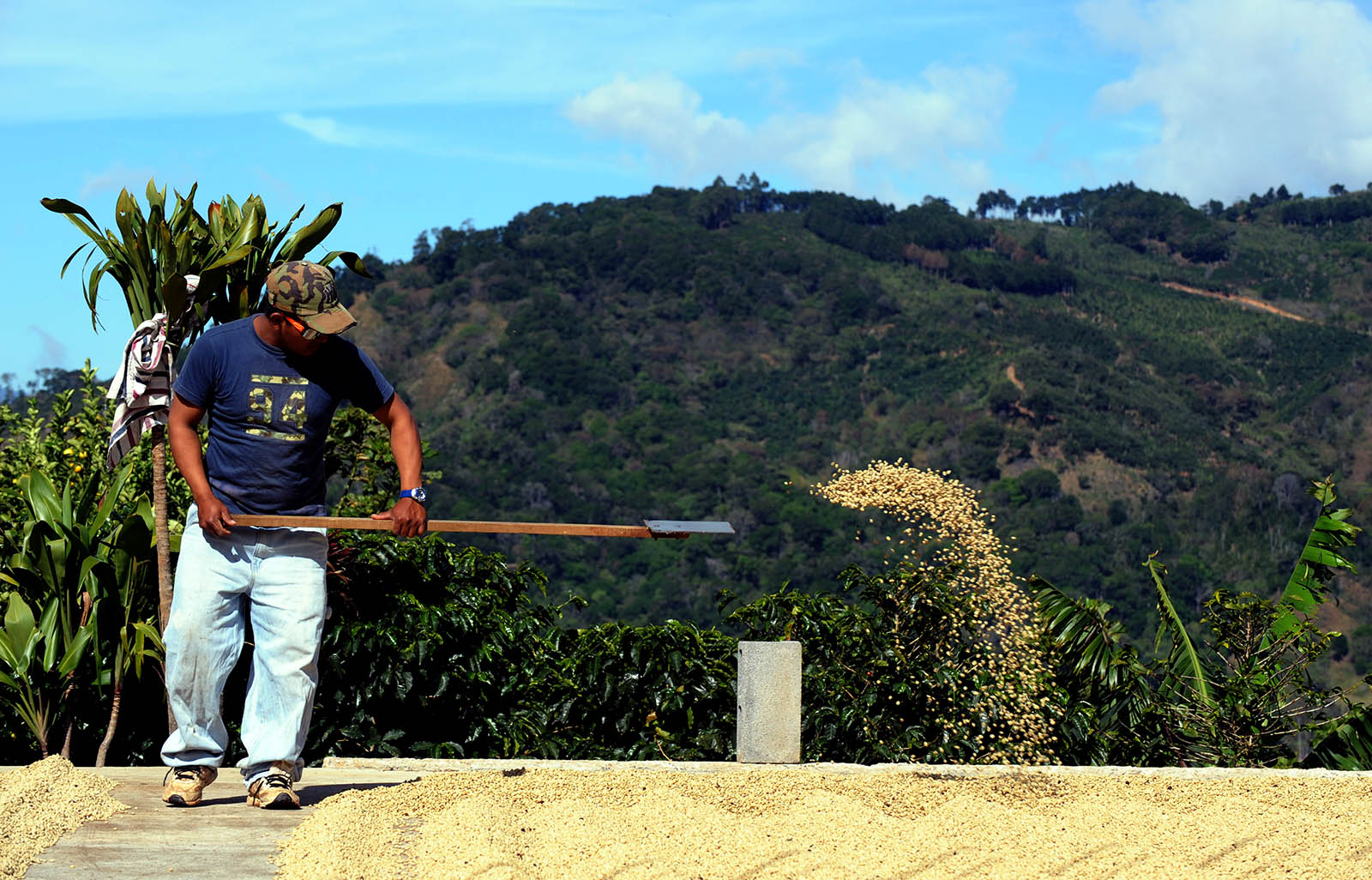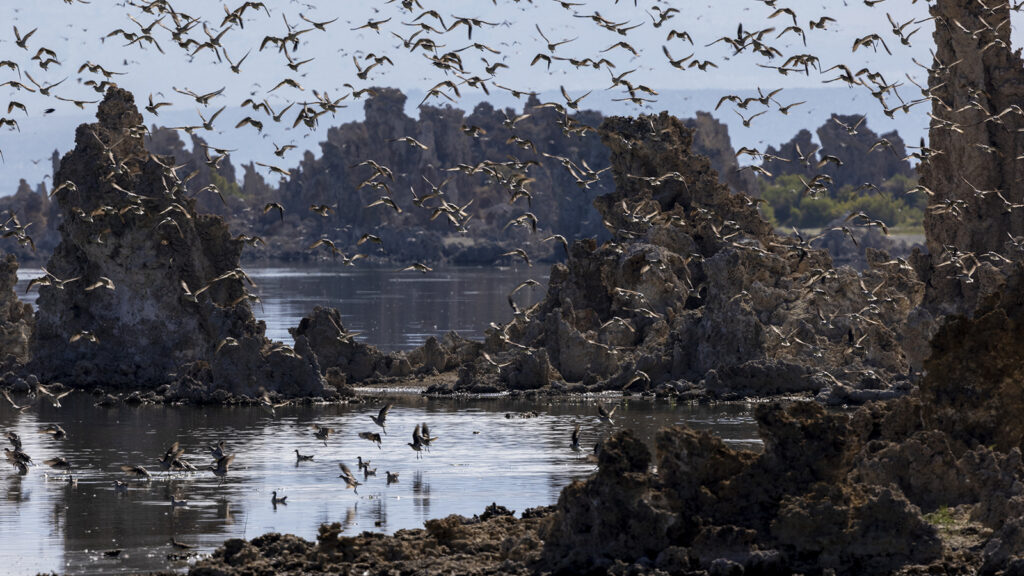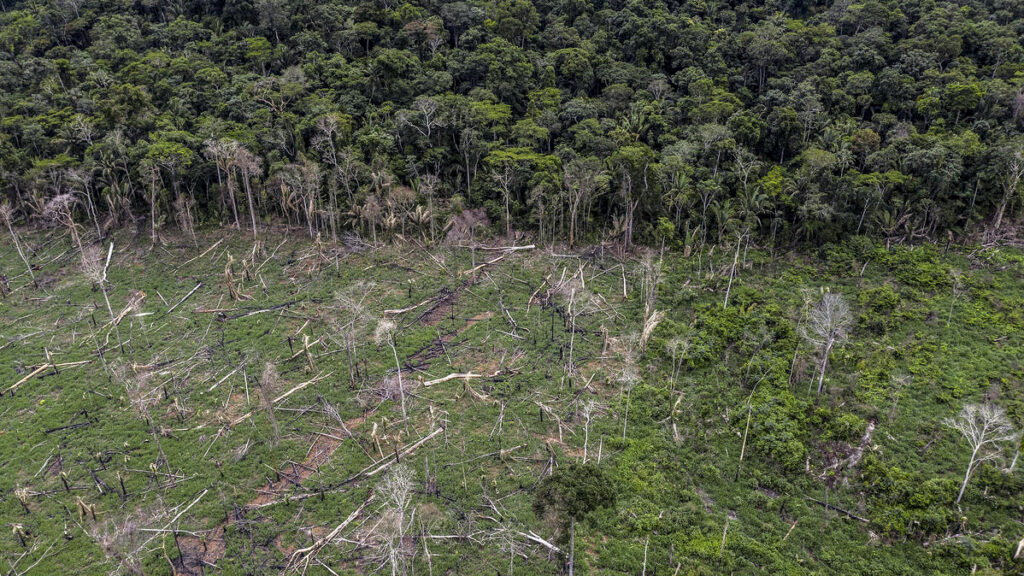Our Relationship With the Planet Is Slowing Human Development

A worker removes coffee beans in San José, Costa Rica. Costa Rica improved quite a lot because it has taken steps over time that have reduced planetary pressures.
Photo: Rodrigo Arangua/AFP via Getty Images
Every year, the release of the UN’s landmark Human Development Index is followed closely by governments around the world.
This year, for the first time, the index has been adjusted to assess the pressures that every country is placing on the planet and its resources, as well as tracking more traditional indicators of human development, such as education and health.
BRINK spoke to the lead author of this year’s index, Pedro Conceição, who explains how the index is incorporating these so-called planetary pressures.
CONCEIÇÃO: The purpose of the HDI is to assess the progress of societies, not only in terms of how quickly an economy is expanding, which uses indicators like GDP, but also by taking into consideration things such as being healthy and having access to education to better capture the broader concept of human development.
This also includes being able to participate in civil society and political participation. It presents a broad perspective on how to assess and measure the performance of countries over time.
For the first time, we are placing the need to reduce the pressures on the planet alongside the goal of expanding human development. We are confronting a new reality in the history of humanity and the planet in which our activity is creating a new generation of risks that is curtailing human development for many today and will continue to do so for everyone in the future.
Tracking Planetary Pressures
COVID-19 may be an example of these planetary pressures, because it’s highly likely that it was the result of a virus that jumped from animals to humans. We know that there’s been an increase in these new zoonotic diseases, which is related to the pressures that we’re putting on the planet, through land use changes, biodiversity loss and so forth.
We often look at climate change as a separate issue from biodiversity and from zoonotic diseases. But if we take a step back, it’s clear that they are all related within this broader process of planetary change driven by human choices.
BRINK: What metrics do you use to measure these pressures on the planet?
All life needs energy and materials. So the two indicators that we use for planetary pressures are carbon dioxide emissions and what we call material footprint, which is the consumption of materials across the supply chain in different countries. We measure each of these on a per capita basis.
No Countries in the Top Tier
BRINK: When you apply those metrics, how does it change the index?
CONCEIÇÃO: What we see is that there are countries achieving very high levels of human development, but that are also exerting much more pressure on the planet than others. And there are countries with low and medium human development, where the adjustment for planetary pressures tends to be very small.
When you add in the planetary pressures, there’s a reassortment of countries. So countries like Costa Rica, for instance, improved quite a lot, because they already scored relatively highly in the Human Development Index and have taken steps over time that have reduced planetary pressures.
On the other side, you see countries that have very high levels of material footprint or very high levels of carbon dioxide emissions and very high levels of human development, and these countries tend to drop quite a bit in the rankings. In fact, more than 50 countries have dropped out of the very high human development group, reflecting their dependence on fossil fuels and material footprint.
We see that within countries, groups that tend to be marginalized or suffer deprivations are likely to be more affected by the implications of planetary pressure.
If you look at the Human Development Index as a two-dimensional space, you want to move toward the space where you have high human development and low planetary pressures. And this is currently a space that is empty. It’s an empty box.
In sports, you have a first tier of teams and a second tier. In this case, you can rank the second tier of teams, but there’s no one in the first tier. That’s the point that we want to emphasize.
Connection Between Planetary Pressures and Social Vulnerability
BRINK: In the report, you make a connection between planetary pressures and social vulnerability. Could you explain that?
CONCEIÇÃO: That’s a very important point. We see that within countries, groups that tend to be marginalized or suffer deprivations are likely to be more affected by the implications of planetary pressure.
For instance, in the West, it’s well-documented that the impact of pollution affects significantly more non-white Hispanic, Black and African American people than white people.
BRINK: Business activities generate a lot of these material products and emit a lot of carbon. How can business help to reduce these planetary pressures?
CONCEIÇÃO: I see a change in part being driven by investors. There’s a big movement, as I’m sure you know, on environmental, social and governance indicators. We also document in the report this growing interest in green financing. Central banks are becoming more interested in understanding climate risks, and there’s a movement to go toward documented exposure to climate risks in financial disclosure statements.
But I’m convinced that this alone is not going to be enough. Regulators and governments have an important role to play. As Mark Carney, who used to be the governor of the Bank of England and is now the adviser of our secretary general for climate finance, says, climate change is going to reprice everything. It’s going to reprice risk.
Climate Change Is Repricing All Risks
There’s a lot that can be done by giving the right price signals, and, more importantly, removing subsidies, for instance, for use of fossil fuels. The full costs of fossil fuel subsidies to societies are estimated by the IMF to be as much as $5 trillion a year.
These are big numbers. There’s a lot to be done at the level of correcting prices that can move the market toward relieving some of these planetary pressures.
There are two other business aspects that are important. One is social norms. What drives people’s behavior is not only economic interest; people also react to norms in society. And this can be very powerful in changing behavior. We see, for instance, what has happened when it comes to tobacco use.
And the other aspect is what we call nature-based human development, which is about looking at nature and the preservation of nature as a business opportunity. So discussions around the blue economy for instance, drawing on the economic potential of preserving our oceans, are becoming increasingly relevant.
It’s not looking at nature as a constraint that doesn’t allow you to build a road or a bridge or an airport somewhere — it’s looking at the preservation of ecosystems as something that can generate welfare benefits for people, as well as economic opportunities.








